Reviews
De Fortabte Sjæles ø
Nikolaj Arcel
Denmark, 2007
Credits
Review by Tom Huddleston
Posted on 09 October 2007
Source 35mm print
Categories The Times BFI 51st London Film Festival
The post-Rowling boom in children’s fantasy fiction has not translated so well to the big screen. Despite a few notable successes like Alfonso Cuarón’s stunningly inventive Harry Potter and the Prisoner of Azkaban, the genre has been increasingly dominated by moralistic, derivative family-friendly fare of the sort Walden Media churns out—corrupted classics like The Lion, The Witch and The Wardrobe and the forthcoming Yankification of Susan Cooper’s The Dark Is Rising.
Leaping onto this still-rolling bandwagon with considerable aplomb comes the Danish effort Island Of Lost Souls. From the very first seconds its clear we’re in familiar territory—the credits come rushing through a rainswept nighttime cloudscape, to the sound of a portentous John Williams-ish orchestral score. We descend to a remote farmhouse, where a secret band of hooded wizards are performing an ancient ritual designed to fight evil. So far, so familiar. But although such cues are derivative almost to the point of cliché, the film acquits itself with such style, charm and vigour that it becomes impossible not to be carried along.
The script is superbly functional, and wastes absolutely no time in getting going. After the establishment of that mysterious society we flash forward to the present day, and a remote coastal town where teenage proto-Goth and budding Wiccan Lulu has been exiled with her mother and brattish younger brother Sylvester. Following an experiment with a ouija board Sylvester is possessed by the roaming spirit of 19th Century wizard Herman, who is on a mission to discover who’s been capturing lost souls and imprisoning them on spooky Monk Island. They enlist awkward local rich kid Oliver and disillusioned clairvoyant physiotherapist Ricard to help them confront the evil Necromancer, and help the souls find their way back to the land of the dead.
The narrative, indeed the entire film is a mish-mash of complementary influences and blatant plagiarism. Besides the obvious Rowling and Disney, in its contrast between a dreary but safe suburbia and a deadly, thrilling supernatural underworld the first half of the film most directly recalls Poltergeist: the nervous Oliver, with his 70s bowlcut, is even a dead ringer for Oliver Robins in that film (and the name is surely no coincidence). But the impact of Spielberg and Lucas (or rather, their ILM effects team) can be felt throughout, from the herky-jerky animatronic Scarecrow which menaces the kids to the light-drenched E.T./Close Encounters leave-taking which closes the film.
Another key inspiration is clearly Joss Whedon, and his combination of familiar sci-fi/fantasy tropes with a dry, self aware sense of humour. From witch-to-be Lulu and her books filled with surprisingly useful paranormal information to the leering, shineheaded Necromancer with his spells and pentagrams, the shadow of Buffy looms large over the entire enterprise. But it is perhaps this influence which, more than any other, allows Island Of Lost Souls to stand out from its more mainstream American peers. By injecting a dose of much needed comedy - from childish slapstick to some very dry, adult, almost political gags - Arcel helps us to enjoy the action onscreen despite its potentially offputting familiarity.
Humour is not the film’s only strong point. The young cast are uniformly excellent, particularly Lucas Munk Billing as the stern 19th Century wizard trapped in the body of an 11-year-old boy, acting as guide and mentor to his older sister. And these characters are beautifully written: Lulu’s suburban frustration is simply sketched but achingly believable, as is Oliver’s quiet desperation at being trapped in a family that just doesn’t understand him. Perhaps the most consistently enjoyable character is Ricard, the conflicted psychic, whose life’s work has led nowhere until this moment of astounding revelation. Simultaneously occupying the seemingly contradictory roles of father figure, crackpot scientist and comic relief, the character feels genuinely fresh.
Visually the film largely succeeds—the effects team don’t attempt to overstretch themselves, the modest budget never becoming a hindrance. Arcel coaxes his actors beautifully, and the quieter scenes have a real warmth. But he struggles as an action director—some of the big sequences fall rather flat, shots running a little long, the movement and visuals somewhat predictable: there’s none of the dazzling stylistic originality which Cuarón brought to his Potter instalment. This does mean that the film slows down just when it should be getting most exciting; the most memorable scenes tend to be the comic ones, as opposed to the grander setpieces. But the strengths of the script and the actors more than compensate, and the film certainly never becomes boring.
Proving that a reliance on cliché need never be a stumbling block as long as you have the wit, energy and intelligence to back it up, Island Of Lost Souls is a superbly constructed and enormously likeable fantasy: my 12-year-old self would have eaten it up with a spoon, despite the subtitles. Indeed, it seems a shame that the language barrier will inevitably prevent the film from reaching the audience it deserves. Surely an American remake cannot be far behind.
More The Times BFI 51st London Film Festival
-
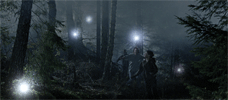
Island of Lost Souls
2007 -

Garage
2007 -
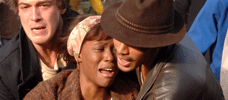
Exodus
2007 -
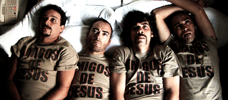
Friends of Jesus
2007 -

We Want Roses Too
2007 -
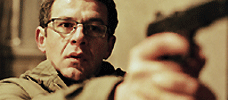
The Trap
2006 -

Captain Ahab
2007 -
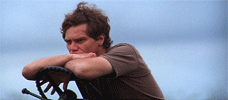
Shotgun Stories
2007 -

Savage Grace
2007 -
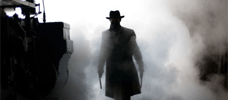
The Assassination of Jesse James by the Coward Robert Ford
2007 -

The World Unseen
2007 -
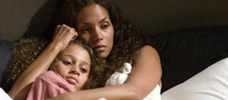
Things We Lost In The Fire
2007 -

Lions for Lambs
2007 -
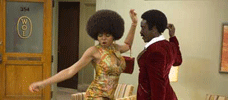
Talk to Me
2007 -

Redacted
2007 -

Battle For Haditha
2007 -

Chaotic Ana
2007 -

Angel
2007 -

Juno
2007 -

Fay Grim
2006 -
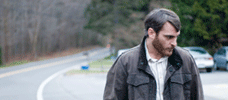
Reservation Road
2007 -
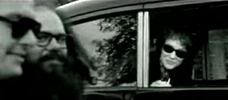
I’m Not There
2007
We don’t do comments anymore, but you may contact us here or find us on Twitter or Facebook.



